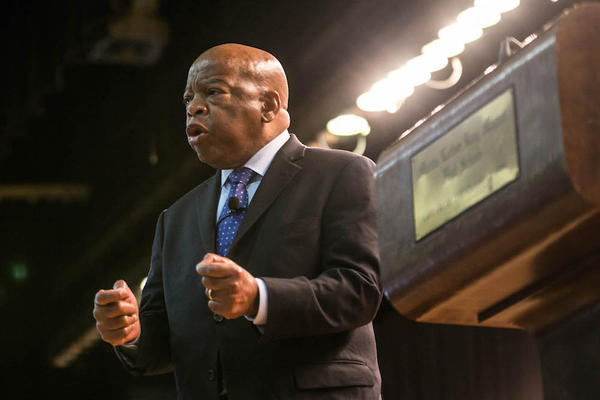
Heartbreaking. Sad. Painful.
Those are some of the words used by Nashville social justice activists to describe the deaths of Congressman John Lewis and Minister C.T. Vivian, two civil rights icons who passed way on Friday.
Both men had connections to Nashville, including studying at American Baptist College.
Gicola Lane, a Nashville activist who has been involved in efforts to reform policing, told WPLN News Saturday the news was heartbreaking.
“But it’s also a reminder that we have to keep going,” Lane said. “They spent their entire lives — more than the time I’ve even been on this Earth — fighting for voting rights, for racial justice.”
Lane said it also felt more personal since both civil rights icon have a connection with Nashville.
“It’s very striking because a lot of their organizing skills were cultivated in Nashville,” Lane said. “They were part of … organizations that went all over the South talking to black people and students doing the really really hard work which is political education from porches and in Blount County, Alabama, and in Jackson, Mississippi.”
She said the two men laid out the foundation — through the Nashville Student Movement — for a new generation of activists.
In the 1960s, integrated teams made of mostly students challenged racial segregation in the city.
Jeneisha Harris is a 23-year-old Black woman who’s has been protesting racial inequality and the bust of Nathan Bedford Forrest at the Tennessee State Capitol. She has also used her platform to call out leaders — including African Americans. She said that inspiration came from Vivian, Lewis and others who worked with them.
“When I first started doing the work of all things activism, people like C.T. Vivian, Mr. Kwame Lillard, John Lewis, Diane Nash and so many other countless people — specifically in Nashville — where very influential in the historical piece that Iearned about,” Harris said.
She said she hopes young people continue learning about the civil rights movement in Nashville and continue being inspired by the two leaders.
“Many of the freedoms that we enjoy specifically in Nashville were because of the work and the sacrifice of people like C.T. Vivian and especially John Lewis,” Harris said. “The next steps for the movement is to just continue to push the momentum.”

